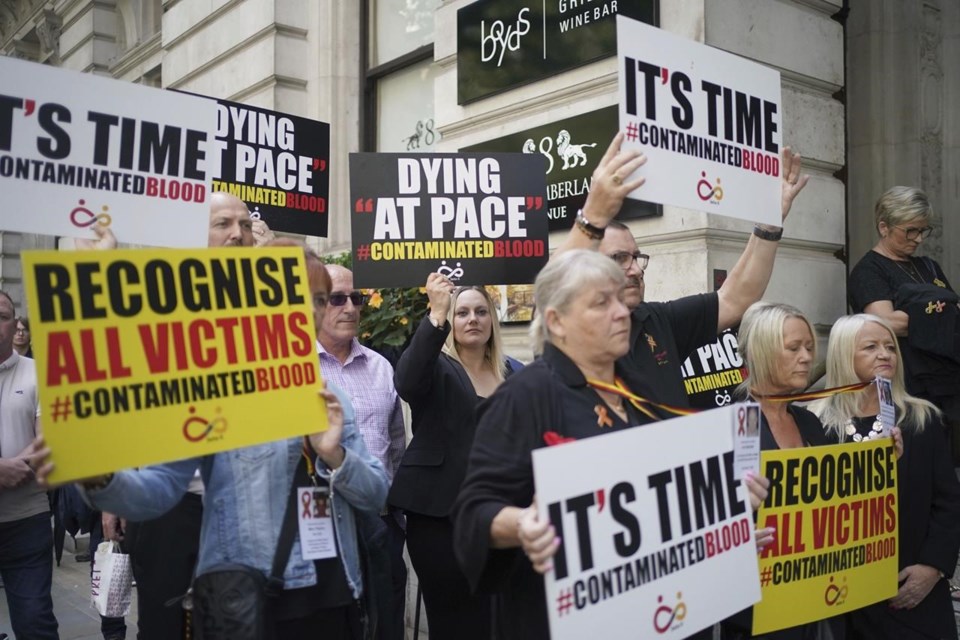LONDON (AP) — British Prime Minister Rishi Sunak said Wednesday he was committed to paying out compensation swiftly to thousands of people affected by the country's infected blood scandal, which saw more than 2,000 patients die after contracting HIV or hepatitis from transfusions of tainted blood in the 1970s and 1980s.
But Sunak, who was testifying before an independent inquiry into the public healthcare scandal, was heckled by survivors and affected families when he did not give a clear answer on when full payments will be paid out.
The Infected Blood Inquiry was established in 2017 to examine how thousands of patients in the UK were infected with HIV or Hepatitis C through contaminated blood products in the 1970s and 1980s.
An estimated 2,400 to 2,900 people died in what is widely described as the worst treatment disaster in the history of Britain’s state-funded National Health Service.
The contaminated blood was linked to supplies of a clotting agent called Factor VIII, which British health services bought from the U.S. Some of the plasma used to make the blood products was traced to high-risk donors, including prison inmates, who were paid to give blood samples.
Hundreds of survivors and affected families — some of whom have worked for decades to lobby for government compensation — packed into a London hotel conference room Wednesday as Sunak gave evidence to the inquiry.
Sunak acknowledged that victims of what he called an “appalling scandal” had been let down by successive governments over the years. His government was “making progress in resolving the years of injustice,” he stressed.
“This is an appalling scandal that has gone on for decades,” Sunak told the inquiry. “This is not just about historic wrongs. People are suffering and being impacted today.”
“Over a succession of not just years, but decades, justice has been denied to people. They haven’t received the recognition that they need and deserve,” he added.
The inquiry’s chairman, retired judge Brian Langstaff, told Sunak that affected families needed real action from his government.
“They recognize the evidence they’ve heard this week of work being done but there aren’t any details. There is no timeline. There is no structure yet in place," Langstaff said.
The government said last year that survivors and bereaved partners of those who died will receive 100,000 pounds ($129,000) as interim payment.
Langstaff recommended in April that compensation should be expanded to include more people whose lives were blighted by the scandal, such as parents who lost their children.
But Sunak reiterated that authorities will wait for the inquiry's full report to be concluded before considering whether to extend the compensation plan for victims. The final report is expected later this year.
Clive Smith, chairman of the Haemophilia Society, said delays in the compensation have “only compounded the suffering of those who have been waiting for this for so long”.
“People who have waited 40 years expect to see a significant demonstration of political will and a commitment to get this done as soon as is practical,” Smith said.
Sylvia Hui, The Associated Press



